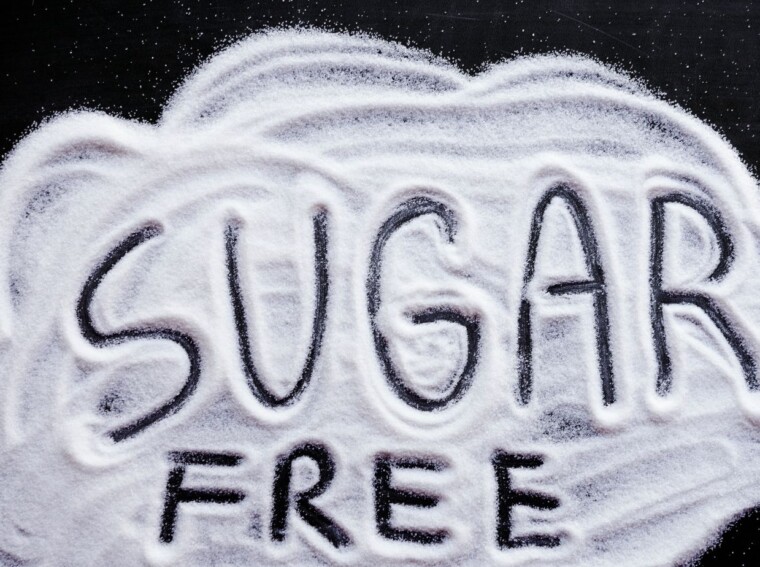If you were to walk into any supermarket aisle today, you would see shelves full of ‘sugar-free’ labels – be it sodas, sweets, protein bars – you name it. But what does “sugar-free” really mean? Is it truly without any sugar? And, more importantly, is it better for your health than non-sugar-free food and beverages, or is it just clever marketing?
Today, we’ll take a look at this matter, discuss whether sugar-free foods and drinks really work, and whether they’re actually better for you.
What “Sugar-Free” Really Means
So, what does ‘sugar-free’ really mean? Just like you’d dig deeper to find the best odds on Ruleta Guru, understanding what ‘sugar-free’ really means requires a closer look beyond the label.
In most countries, including the United States and Europe, ‘sugar-free’ means that the product contains less than 0.5 grams of sugar per serving. But that doesn’t mean that the product is free from all sweeteners. It just means that it doesn’t contain traditional sugar (like glucose, sucrose, or fructose) at a level higher than 0.5 grams per serving. The serving size for each product is clearly labelled on the packaging.
To maintain the sweet taste in ‘sugar-free’ products, companies replace sugar with other types of sweeteners. These can include artificial sweeteners like aspartame, sucralose, or saccharin, as well as natural ones like stevia or monk fruit extract.
Are Artificial Sweeteners Bad For You?
Artificial sweeteners have been around for a longer time than you might think. The first artificial sweetener was created in 1879, and the idea is to mimic the sweetness of natural sweeteners, primarily sugar, but without the calories. Some of the most common artificial sweeteners are:
- Aspartame (usually found in products such as Diet Coke)

- Sucralose (often found in sugar-free gums like Splenda)
- Saccharin (one of the first artificial sweeteners ever used, but not as widely used today)
Importantly, artificial sweeteners are typically created to pass through the human body without being fully digested, so they don’t raise the blood sugar levels the way regular sugar does. That’s why they’re often used by people with diabetes or those who want to cut down on calories.
Many of these artificial sweeteners don’t produce any calories, so the ‘zero calories’ label on beverages is true. However, research on long-term health effects of artificial sweeteners is mixed. Some studies suggest that consuming them in large quantities might alter gut bacteria or even make people crave more sweets. But, they’re declared safe in moderation by regulatory bodies like the FDA and EFSA.
As for their uses, we’ll take one of the most popular drinks – Coke Zero – as an example. It contains both aspartame and acesulfame potassium, and it genuinely contains zero sugar and virtually zero calories. So, it might be a helpful tool for someone cutting calories, but only if taken in moderation.
What About Natural Sweeteners?
Besides artificial sweeteners, there’s a growing use of natural sweeteners. They are plant-derived alternatives to sugar, but they’re still processed. Some of the most popular natural alternatives to sugar are stevia and monk fruit extract.
Stevia is extracted from the stevia plant and is used in very low quantities due to its natural sweetness. Monk fruit extract, on the other hand, is derived from a melon-like fruit from Southeast Asia, but it’s not fructose like regular fruit sugar, so it contains very few calories.
Natural sweeteners usually don’t spike blood sugar levels and are considered safe by major health organizations. Most of the studies that have been conducted show that there are no harmful effects of natural sweeteners when used in moderation.
They’re widely used in sugar-free beverages and food. For example, Fisherman’s Friend Sugar-Free peppermint sweets use natural sweeteners like stevia or sorbitol instead of sugar. They still taste sweet, but they’re not loaded with traditional sugar.
It’s important to point out, however, that sugar alcohols like xylitol and sorbitol can cause digestive issues like bloating to some people, especially if consumed in large quantities.
Are Sugar-Free Foods Healthier?
We finally come to the tricky question: are sugar-free foods really healthier?
The answer is: it depends.

If you’re someone who tries to manage blood sugar, cut down on your overall calorie intake, or reduce the risk of tooth decay that’s commonly attributed to traditional sugar, then sugar-free options might be helpful. However, ‘sugar-free’ doesn’t always mean that the product is low in carbs, calories, or chemicals.
For example, a sugar-free protein bar might still contain fats or additives. So, it’s always important to read the label and know exactly what’s inside the food or drink you are consuming.
A sugar-free soda drink cuts out sugar and calories, but offers no nutritional benefits either. In other words, it’s not a magic bullet, but a trade-off. Sometimes, food naturally sweetened with fruit sugar (like an apple or a banana) might be a better option than an ultra-processed sugar-free snack or a drink.
The bottom line is that sugar-free foods and drinks can be useful tools if you have a clear goal, like managing diabetes, cutting calories, or similar, but they’re not automatically ‘healthy’ just because they lack sugar.
